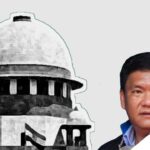Code
(1) A Court of Session taking cognizance of an offence under sub-section (2) of section 199 shall try the case in accordance with the procedure for the trial of warrant-cases instituted otherwise than on a police report before a Court of Magistrate:
Provided that the person against whom the offence is alleged to have been committed shall, unless the Court of Session, for reasons to be recorded, otherwise directs, be examined as a witness for the prosecution.
(2) Every trial under this section shall be held in camera if either party thereto so desires or if the Court thinks fit so to do.
(3) If, in any such case, the Court discharges or acquits all or any of the accused and is of opinion that there was no reasonable cause for making the accusation against them or any of them, it may, by its order of discharge or acquittal, direct the person against whom the offence was alleged to have been committed (other than the President, Vice-President or the Governor of a State or the Administrator of a Union territory) to show cause why he should not pay compensation to such accused or to each or any of such accused, when there are more than one.
(4) The Court shall record and consider any cause which may be shown by the person so directed, and if it is satisfied that there was no reasonable cause for making the accusation, it may, for reasons to be recorded, make an order that compensation to such amount not exceeding one thousand rupees, as it may determine, be paid by such person to the accused or to each or any of them.
(5) Compensation awarded under sub-section (4) shall be recovered as if it were a fine imposed by a Magistrate.
(6) No person who has been directed to pay compensation under sub-section (4) shall, by reason of such order, be exempted from any civil or criminal liability in respect of the complaint made under this section:
Provided that any amount paid to an accused person under this section shall be taken into account in awarding compensation to such person in any subsequent civil suit relating to the same matter.
(7) The person who has been ordered under sub-section (4) to pay compensation may appeal from the order, in so far as it relates to the payment of compensation, to the High Court.
(8) When an order for payment of compensation to an accused person is made, the compensation shall not be paid to him before the period allowed for the presentation of the appeal has elapsed, or, if an appeal is presented, before the appeal has been decided.
Explanation
- Section 199(2) pertains to offenses that require a complaint to be made by a person aggrieved by the offense. These offenses are typically non-cognizable and require the consent of the Magistrate to take cognizance of the case.
- Section 237 outlines the procedure to be followed by the Magistrate after taking cognizance of the offense, based on the complaint filed under Section 199(2).
- “Inquiry” refers to the preliminary investigation conducted by the Magistrate to determine whether sufficient grounds exist to proceed with a formal trial.
Illustration
Consider a situation where an individual makes a complaint against another person for defamation (an offense under Section 499 IPC). This offense falls under Section 199(2) of CrPC, meaning the Magistrate requires a complaint before taking cognizance. The Magistrate, upon receiving the complaint, will follow the procedures outlined in Section 237 to conduct an inquiry and decide whether to proceed with the trial.
Common Questions and Answers
Q: What are the key steps involved in the inquiry under Section 237?
A: The inquiry involves collecting evidence from the complainant, examining the accused, and investigating the allegations. The Magistrate will assess the evidence to determine if sufficient grounds exist to proceed with a formal trial.
Q: What happens after the inquiry under Section 237?
A: If the Magistrate finds sufficient grounds, the case will be converted into a trial. If not, the Magistrate may discharge the accused or dismiss the complaint.
Q: Does Section 237 apply to all cases instituted under Section 199(2)?
A: Yes, Section 237 outlines the general procedure for all cases instituted under Section 199(2) of the CrPC.








